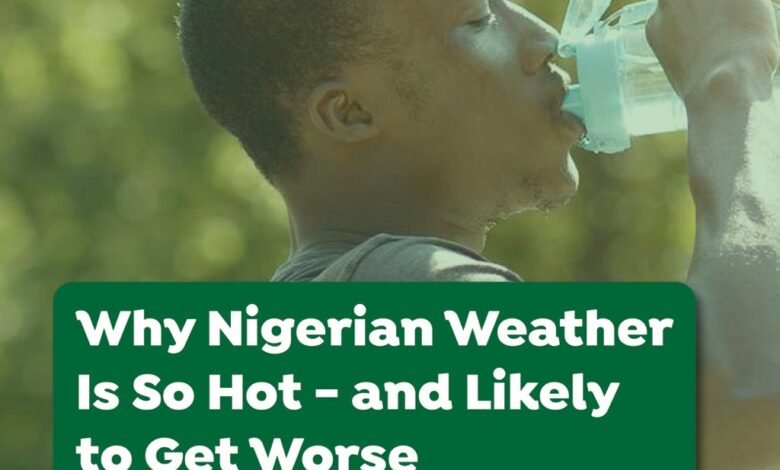
Religious places are likely to receive record numbers of converts following the renewed fear of hellfire that the simmering hot Nigerian weather must have planted in the hearts of its citizens. If a place is truly hotter than Nigeria at the moment, no one wishes to experience it and thus many are getting their spiritual lives in order.
Unfortunately, the heat is expected to continue as the Nigerian Meteorological Agency (NiMET) predicts abnormally high temperatures until June. In their recent Seasonal Climate Prediction document, NiMET forecasts deviations from normal day and night-time temperatures for March, April, and May.
In March 2024, nighttime temperatures across Nigeria are expected to range from 17°C to 26°C. The lowest nighttime temperature of 17°C is expected over Plateau State, while most parts of the country will experience temperatures higher than 23°C. Warmer than normal nighttime temperatures are expected in various parts of the country, both in the northern and southern states. However, the north-central states are expected to have normal nighttime temperatures, while the FCT and its environs are expected to be cooler than usual at night.
In April 2024, the maximum temperature is predicted to range from 31°C to 43°C for all states. Plateau, Oyo, Osun, and the coastal states are expected to have the lowest maximum temperatures of 31°C to 34°C. Warmer-than-normal daytime temperatures are expected across the country, except for parts of Jigawa, Bauchi, and Borno States where normal daytime temperatures are anticipated.
Additionally, below-normal temperatures are expected over Yobe State. In July, there is a likelihood of a severe dry spell that may persist for more than 15 days. Moderate dry spells spanning about 16 days are expected in central areas, and mild dry spells are anticipated in Ogun, Osun, Edo, Enugu, Anambra, and northern Cross River during this period.
Scientists have identified climate change as a direct cause of the increased heat. Additionally, the transition to the dry season, characterized by fewer rainfalls and soaring midday temperatures, exacerbates the situation.





